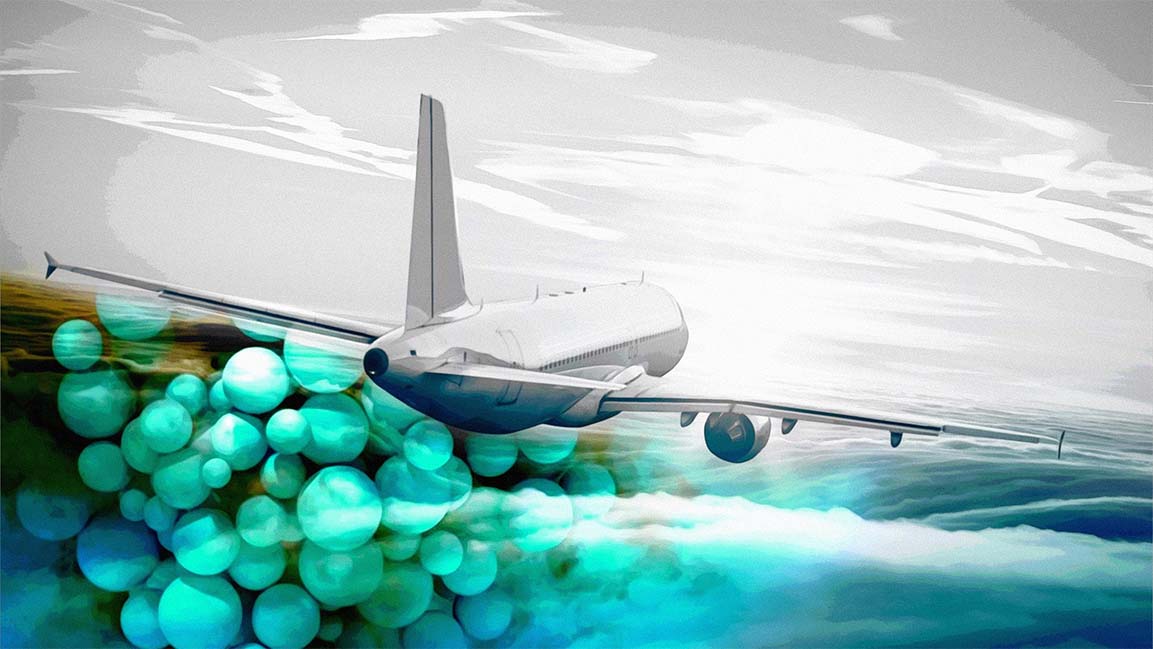- | 12:00 pm
Riyadh Air CEO calls for airline sustainability
Airlines in the region are undertaking several initiatives to achieve net zero emissions by 2050

Aviation, which produces around 2% of the world’s emissions, is considered one of the hardest sectors to decarbonize. And the pressure is growing to limit carbon emissions amid low supplies of Sustainable Aviation Fuel (SAF), currently accounting for only 0.1% of airline consumption.
Now, Tony Douglas, CEO of Saudi Arabia’s new national airline Riyadh Air, which made its debut flight on June 12, has warned that airlines that do not take sustainability seriously will fail in the near future.
According to Reuters, Douglas at the Paris Air Show said Riyadh Air, the second national air carrier of the kingdom and owned by Saudi Arabia’s Public Investment Fund (PIF), will be commercially viable and environmentally sustainable.
The CEO said there would be “strict financial expectations” on Riyadh Air from its owners but did not get into the details.
“Ultimately, it will be commercial aviation sustainability that will differentiate the winners and the losers, and anyone who doesn’t take it seriously will probably fail for sure,” Douglas added.
While the international aviation industry agreed to a goal of net zero emissions by 2050, companies in the Middle East and North Africa (MENA) region are ensuring they meet climate targets.
“The commitment is global. Everybody is nervous about what it will take, there is concern about the cost and whether the targets can be achieved, but there is very clear determination from everybody to do it,” Willie Walsh, head of the International Air Transport Association, said earlier this month.
“Carriers in the region, actually, are probably some of the more advanced,” he said. “Carriers in the region are doing a lot … we have reason to be very proud of what’s happening in the region.”
Voicing skepticism, earlier this month, Qatar Airways Group Chief Executive Akbar Al Baker said the airline industry will miss the 2050 net-zero target.
“Let us not fool ourselves. We will not even reach the targets we have for 2030, I assure you. Because there is not enough raw material to get the volumes of SAF (sustainable aviation fuel),” he told CNN.
He added that the target is unrealistic as the volume of SAF production is needed to meet the growing demand.
But sustainability efforts in the region are a work in progress, and carriers are trying to lessen their carbon footprint. The UAE unveiled its National Sustainable Aviation Fuel Road Map in January to accelerate the aviation sector’s decarbonization. Emirates Airlines announced a $200 million fund for the production of sustainable aviation fuel – in January, it successfully flew a Boeing 777 on a test flight with one of its two engines entirely powered by sustainable aviation fuel.
In January, Masdar signed a deal with Airbus to develop SAF, green hydrogen, and direct air capture technology. Masdar, France’s TotalEnergies, and Germany’s Siemens Energy announced plans to produce SAF from methanol.
































